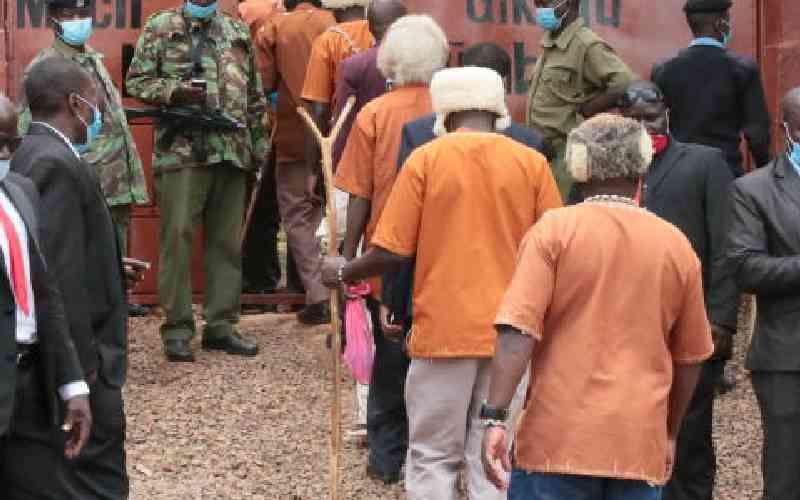
Members of Kikuyu Council of Elders when they went to Mukurwe Wa Nyagathanga in Murang'a to install former National Assembly Speaker Justin Muturi as GEMA's spokesperson. [Kibata Kihu, Standard]
Cultural leaders of Agikuyu and Meru communities have had an active and impactful influence on the political fate of the Mt Kenya region. However, due to the high-stakes politics witnessed this year, the Njuri Ncheke Supreme Council of the Ameru and the Agikiuyu Council of Elders who revere themselves as the custodians of their community interests found themselves at odds. They nearly lost credibility.